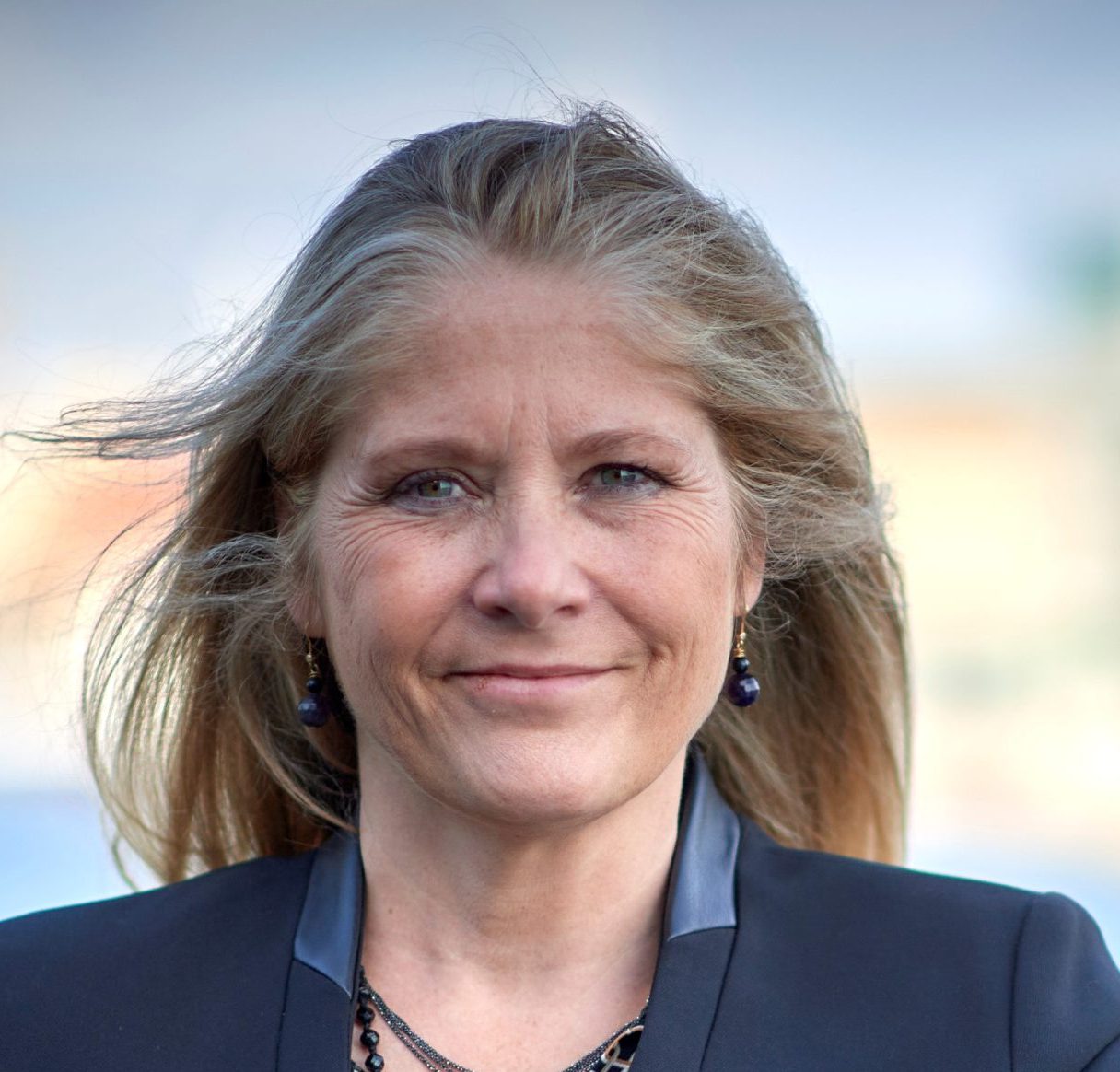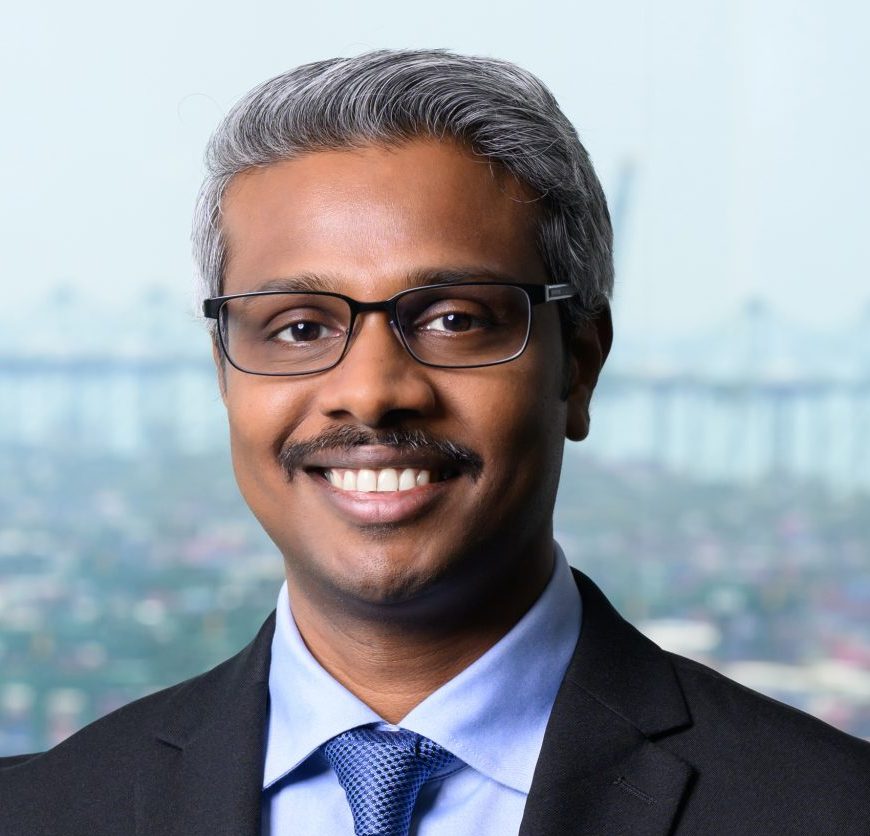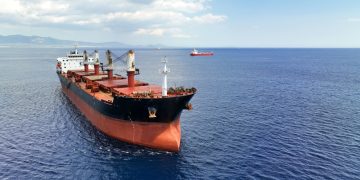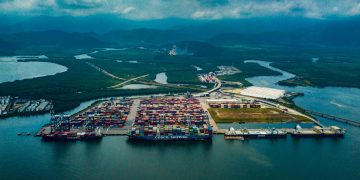This time of the year gives us a great opportunity to set targets and prepare action plan for the next 365 days ahead. As we are getting ready to welcome 2024, we remain optimistic that despite the challenges, maritime industry will keep strong and ready to adapt to new trends.
In this context, we have asked industry stakeholders to share their perspectives on what should be our key priorities on the agenda for the new year. From fortifying sustainability initiatives to embracing innovations, their maritime resolutions aim to propel the industry forward. Through collaborative efforts and a shared commitment to excellence, industry aims to make 2024 a transformative year, marked by progress, adaptability, and a steadfast dedication to maritime excellence.
Q: “What should be a key priority on the industry’s agenda for 2024 from your perspective and why?’’
Capt. Akshat Arora, Senior Risk Assessor, Thomas Miller P&I Ltd
 The maritime industry is in the midst of a transformation as it focuses on decarbonisation and digitalisation. In order to ensure a smooth transition, seafarers’ role is pivotal. However, there has been a consistent decline in their happiness and satisfaction levels, and there have been challenges associated with the retention and recruitment of personnel at sea. As such, I feel that the key priority for 2024 should be to address these concerns by implementing initiatives that are aimed at improving the health and well-being of seafarers. Equally crucial will be to take steps to ensure that the maritime industry remains a lucrative option for youth and equip professionals with the necessary skills and knowledge to adapt to the evolving landscape.
The maritime industry is in the midst of a transformation as it focuses on decarbonisation and digitalisation. In order to ensure a smooth transition, seafarers’ role is pivotal. However, there has been a consistent decline in their happiness and satisfaction levels, and there have been challenges associated with the retention and recruitment of personnel at sea. As such, I feel that the key priority for 2024 should be to address these concerns by implementing initiatives that are aimed at improving the health and well-being of seafarers. Equally crucial will be to take steps to ensure that the maritime industry remains a lucrative option for youth and equip professionals with the necessary skills and knowledge to adapt to the evolving landscape.
Mette Asmussen, Lead, Maritime Sector Initiatives, Centre for Nature and Climate, World Economic Forum
 When we enter 2024 we will be less than six years away from a crucial 2030 mid-term target year for emission reductions and scale up of zero-emission fuels. I hope the drumbeat of real economic actions and investments started in 2023 from first movers will not only be continuing into 2024, but see a multiplier effect impact from first movers, early adopters and fast followers altogether. We need concrete actions in the form of investments, technology scaling, infrastructure readiness and real progress in bringing down costs and willingness to pay up to close the gap between supply and demand supported by well-designed and suitable international policies.
When we enter 2024 we will be less than six years away from a crucial 2030 mid-term target year for emission reductions and scale up of zero-emission fuels. I hope the drumbeat of real economic actions and investments started in 2023 from first movers will not only be continuing into 2024, but see a multiplier effect impact from first movers, early adopters and fast followers altogether. We need concrete actions in the form of investments, technology scaling, infrastructure readiness and real progress in bringing down costs and willingness to pay up to close the gap between supply and demand supported by well-designed and suitable international policies.
Jenny Braat, CEO at Danish Maritime
 A key priority for the global shipping industry in 2024 should be boosting energy efficiency. This is crucial for the industry’s green transition and aligning with the IMO’s goals. Doubling our energy efficiency efforts is vital to meet the demands of the global fleet, which has doubled since 2008, while reducing emissions and meeting environmental targets. Advancements in propulsion technologies, optimizing vessel design, and adopting alternative fuels are pivotal. Elevating energy efficiency as a central agenda in 2024 is imperative for steering global shipping toward a greener, more sustainable future. On a positive note, innovation and the willingness to pursue the sustainable path together are flourishing, and that pleases me! Digitalization, automation, and the development of diverse new or improved technologies are happening at an impressive pace, undoubtedly taking us a significant step forward in 2024. We look forward to contributing in Denmark.
A key priority for the global shipping industry in 2024 should be boosting energy efficiency. This is crucial for the industry’s green transition and aligning with the IMO’s goals. Doubling our energy efficiency efforts is vital to meet the demands of the global fleet, which has doubled since 2008, while reducing emissions and meeting environmental targets. Advancements in propulsion technologies, optimizing vessel design, and adopting alternative fuels are pivotal. Elevating energy efficiency as a central agenda in 2024 is imperative for steering global shipping toward a greener, more sustainable future. On a positive note, innovation and the willingness to pursue the sustainable path together are flourishing, and that pleases me! Digitalization, automation, and the development of diverse new or improved technologies are happening at an impressive pace, undoubtedly taking us a significant step forward in 2024. We look forward to contributing in Denmark.
Vibin Chandrabose, Director of Research & Projects, Global Centre for Maritime Decarbonisation
 Undoubtedly, the maritime sector is poised for a profound transformation in the coming years. While a spectrum of technologies is on the horizon, alternative fuels are the contenders that can get us to net-zero emissions. Recognising the pivotal role of individuals in ensuring safety, the industry must prioritise the standardisation of safety training and competencies linked to evolving technologies around alternative fuels. GCMD actively contributes to local and international safety standards development and emergency response plans through active participation in standards committees such as the Singapore-based Bunkering Standards Technical Committee and the Methanol and Ammonia Bunkering Working Groups. Equipping maritime professionals with harmonised training programmes fosters adaptability and safety, ensuring a resilient and sustainable future for the maritime sector.
Undoubtedly, the maritime sector is poised for a profound transformation in the coming years. While a spectrum of technologies is on the horizon, alternative fuels are the contenders that can get us to net-zero emissions. Recognising the pivotal role of individuals in ensuring safety, the industry must prioritise the standardisation of safety training and competencies linked to evolving technologies around alternative fuels. GCMD actively contributes to local and international safety standards development and emergency response plans through active participation in standards committees such as the Singapore-based Bunkering Standards Technical Committee and the Methanol and Ammonia Bunkering Working Groups. Equipping maritime professionals with harmonised training programmes fosters adaptability and safety, ensuring a resilient and sustainable future for the maritime sector.
Ioannis Chiotopoulos, Senior Vice President & Regional Manager SE Europe, Middle East and Africa, DNV
 In 2024, DNV sees advancing sustainability and building resilience as the paramount priorities for shipping. As we face a decisive decade for climate change, the industry must accelerate the adoption of sustainable fuels, enhance energy efficiency, and embrace innovative technologies. The regulatory environment and stakeholder pressure around decarbonization and emissions reductions are ramping up. And complying with these regulations will be essential if we want to elevate our industry and maintain its relevance. Additionally, prioritizing digitalization through data analytics and automation will help to optimize operations and boost efficiency – but only as long as we balance these against cyber security risks. However, by focusing on these key areas, the maritime industry can significantly contribute to global sustainability goals and navigate the evolving business landscape.
In 2024, DNV sees advancing sustainability and building resilience as the paramount priorities for shipping. As we face a decisive decade for climate change, the industry must accelerate the adoption of sustainable fuels, enhance energy efficiency, and embrace innovative technologies. The regulatory environment and stakeholder pressure around decarbonization and emissions reductions are ramping up. And complying with these regulations will be essential if we want to elevate our industry and maintain its relevance. Additionally, prioritizing digitalization through data analytics and automation will help to optimize operations and boost efficiency – but only as long as we balance these against cyber security risks. However, by focusing on these key areas, the maritime industry can significantly contribute to global sustainability goals and navigate the evolving business landscape.
Kim Diederichsen, CEO, Anemoi Marine Technologies

Everyone is talking about decarbonisation, particularly as vessels adapt to cleaner fuel options. However, shipowners need to look beyond just the fuel they use and evaluate every aspect of a vessel to see where efficiency gains can be made. Shipping is making positive steps to decarbonise but if we are truly going to make a long-term impact, it will take time, investment and adoption of new technologies that ensure vessels can meet stringent emission requirements globally.
Dr Kostas Gkonis, Director / Secretary General, INTERCARGO
 Embrace a visionary and robust approach on the sustainability journey! Repetition of same concepts in industry discussions indicates a lack of thought leadership. We need to allow fresh ideas and advancements from other industries to enrich our perspective. ESG embodies the essential principles for sustainable shipping. We must be innovative and inspiring in attracting a new generation of talent and investing in the future across a broad spectrum of challenges. Effectively communicating our sector’s amazing story, upgrading or transforming our practices, adopting and operating new technologies under the expertise of skilled seafarers, leveraging AI and the latest achievements of humankind will propel us as a sustainable and forward-thinking maritime industry.
Embrace a visionary and robust approach on the sustainability journey! Repetition of same concepts in industry discussions indicates a lack of thought leadership. We need to allow fresh ideas and advancements from other industries to enrich our perspective. ESG embodies the essential principles for sustainable shipping. We must be innovative and inspiring in attracting a new generation of talent and investing in the future across a broad spectrum of challenges. Effectively communicating our sector’s amazing story, upgrading or transforming our practices, adopting and operating new technologies under the expertise of skilled seafarers, leveraging AI and the latest achievements of humankind will propel us as a sustainable and forward-thinking maritime industry.
Ian Gooch, CEO, The London P&I Club
 Global geopolitical tensions inevitably loom large – and we have seen recent examples of their direct impact on merchant shipping. At the same time, improving maritime safety remains an industry wide goal and central to what we do. It’s an area in which there has been substantial progress – and where the efficient harnessing and enhanced analytics of data offers scope for continued improvement. But accidents will happen and, when they do, it’s vital that the impact is mitigated by an effective response. Safe shipping requires a strong collective effort and it’s critical that safety – and the importance of experienced resources required to handle incidents and casualties – does not fall off the agenda at the expense of other equally vital challenges.
Global geopolitical tensions inevitably loom large – and we have seen recent examples of their direct impact on merchant shipping. At the same time, improving maritime safety remains an industry wide goal and central to what we do. It’s an area in which there has been substantial progress – and where the efficient harnessing and enhanced analytics of data offers scope for continued improvement. But accidents will happen and, when they do, it’s vital that the impact is mitigated by an effective response. Safe shipping requires a strong collective effort and it’s critical that safety – and the importance of experienced resources required to handle incidents and casualties – does not fall off the agenda at the expense of other equally vital challenges.
Lars Hardeland, Group Operations Director, Shipping, GAC Group
 The IMO is rightfully focusing on safety for its theme for 2024. Effective safe boarding strategies, as well as educating local suppliers in safety and compliance, are a must for shipping companies globally and we must not lose sight of protecting personnel both onboard vessels and shoreside during commercial operations. We must also continue to prioritise initiatives, both local and international, that protect our environment, while keeping maritime efficiency in mind.
The IMO is rightfully focusing on safety for its theme for 2024. Effective safe boarding strategies, as well as educating local suppliers in safety and compliance, are a must for shipping companies globally and we must not lose sight of protecting personnel both onboard vessels and shoreside during commercial operations. We must also continue to prioritise initiatives, both local and international, that protect our environment, while keeping maritime efficiency in mind.
Raal Harris, Chief Creative Officer, OCEAN Technologies Group
 This year we have collectively been able to get our arms around a number of developing trends that present both threats and opportunities for our industry. We are starting to understand the challenges ahead as fundamentally about people and how we adjust our ways of working to ensure they are able to transition successfully to a digital and more sustainable future. This means developing new skills but also creating an environment and culture in which they feel valued, respected and able to develop their careers. We need to improve our human capital management capabilities to make this transition and start to address anxiety about retaining and attracting the workforce of tomorrow.
This year we have collectively been able to get our arms around a number of developing trends that present both threats and opportunities for our industry. We are starting to understand the challenges ahead as fundamentally about people and how we adjust our ways of working to ensure they are able to transition successfully to a digital and more sustainable future. This means developing new skills but also creating an environment and culture in which they feel valued, respected and able to develop their careers. We need to improve our human capital management capabilities to make this transition and start to address anxiety about retaining and attracting the workforce of tomorrow.
Sinikka Hartonen, Secretary General, One Sea Association
 My hope is that 2024 will be a year where the maritime industry manages to embrace innovations and transform new ideas into impactful products, processes and policies. Of course, we are all aware of the urgent need for new fuels and energy forms, but I truly wish we could find new ways to have meaningful discussions that encourage the exchange of knowledge and ideas – not only within the maritime industry but with other industries too. We need innovations in a variety of areas, and while we have well-established ways of collaborating, there is always room to do more. We need to find more effective ways of working together so we can start turning words into actions that drive positive change.
My hope is that 2024 will be a year where the maritime industry manages to embrace innovations and transform new ideas into impactful products, processes and policies. Of course, we are all aware of the urgent need for new fuels and energy forms, but I truly wish we could find new ways to have meaningful discussions that encourage the exchange of knowledge and ideas – not only within the maritime industry but with other industries too. We need innovations in a variety of areas, and while we have well-established ways of collaborating, there is always room to do more. We need to find more effective ways of working together so we can start turning words into actions that drive positive change.
Bjørn K. Haugland, CEO, Skift – Business Climate Leaders
 In 2024, let’s make a resounding commitment to transform our industry into a beacon of inspiration for a sustainable future. Embracing innovation and green practices should be at the forefront of our agenda. By championing eco-friendly technologies and cultivating a culture of environmental stewardship, we not only contribute to a healthier planet but also pave the way for unprecedented growth and prosperity. Imagine the impact we can create—inspiring positive change globally, winning the trust of consumers, and fostering a legacy of responsible leadership. Together, let’s turn challenges into opportunities and forge a path that not only elevates our industry but leaves an enduring mark on the world.
In 2024, let’s make a resounding commitment to transform our industry into a beacon of inspiration for a sustainable future. Embracing innovation and green practices should be at the forefront of our agenda. By championing eco-friendly technologies and cultivating a culture of environmental stewardship, we not only contribute to a healthier planet but also pave the way for unprecedented growth and prosperity. Imagine the impact we can create—inspiring positive change globally, winning the trust of consumers, and fostering a legacy of responsible leadership. Together, let’s turn challenges into opportunities and forge a path that not only elevates our industry but leaves an enduring mark on the world.
Capt. Hans Hederström, Marine Consultant, Marine Consultancy Group, MCG AB
 The Maritime Industry must increase their efforts to implement Safety Leadership, by highlighting the importance of the relationship factor with the aim to achieve operational excellence in safety performance through full employee engagement. This goal will require that leaders both ashore and onboard have to attend leadership training together to gain sufficient understanding and knowledge of the relationship factors to create trust and psychological safety that encourage and inspire employees. Poor understanding of above criteria is mainly due to that leaders in the maritime industry too often are promoted based only on their technical competence. For this reason, there is an urgent need for an improved selection process when promoting into a leadership position. For onboard positions good and reliable outcomes in the selection process can be achieved by using Full Mission simulator exercises. Such exercises should be performed with a full Bridge or Engine Control Room team present where the candidate is assessed by experienced instructors and a psychologist.
The Maritime Industry must increase their efforts to implement Safety Leadership, by highlighting the importance of the relationship factor with the aim to achieve operational excellence in safety performance through full employee engagement. This goal will require that leaders both ashore and onboard have to attend leadership training together to gain sufficient understanding and knowledge of the relationship factors to create trust and psychological safety that encourage and inspire employees. Poor understanding of above criteria is mainly due to that leaders in the maritime industry too often are promoted based only on their technical competence. For this reason, there is an urgent need for an improved selection process when promoting into a leadership position. For onboard positions good and reliable outcomes in the selection process can be achieved by using Full Mission simulator exercises. Such exercises should be performed with a full Bridge or Engine Control Room team present where the candidate is assessed by experienced instructors and a psychologist.
Paul Hexter, President, Waterfront Shipping
 For 2024, Waterfront Shipping would like to see the shipping industry continue the prioritization of seafarers’ well-being and the accelerated adoption of greener alternative fuels. Focusing on seafarers’ health, safety and mental well-being is essential to the overall welfare of the industry’s workforce and fostering a resilient shipping sector. At the same time, the industry needs to collaborate to advance solutions that can meet the growing demand for cleaner alternative marine fuels, such as methanol to support the transition to a low-carbon future. May the New Year bring shared health, success, and progress for all.
For 2024, Waterfront Shipping would like to see the shipping industry continue the prioritization of seafarers’ well-being and the accelerated adoption of greener alternative fuels. Focusing on seafarers’ health, safety and mental well-being is essential to the overall welfare of the industry’s workforce and fostering a resilient shipping sector. At the same time, the industry needs to collaborate to advance solutions that can meet the growing demand for cleaner alternative marine fuels, such as methanol to support the transition to a low-carbon future. May the New Year bring shared health, success, and progress for all.
Dr. Jan Hoffman, Head of the Trade Logistics Branch within the Division on Technology and Logistics, UNCTAD
 I very much hope that the members of the IMO can agree on an economic measure towards the decarbonization of maritime transport. This would help on three accounts: First, it closes the price gap between traditional and low-carbon fuels, helping with decarbonization. Second, it can generate funds to help the most vulnerable countries during the transition, and third, last but not least, it reduces uncertainty for investors. If there is one thing we have learned during the recent supply chain crisis, it is how a shortage of supply can lead to high freight costs and consequently inflation, higher food prices, and thus poverty.
I very much hope that the members of the IMO can agree on an economic measure towards the decarbonization of maritime transport. This would help on three accounts: First, it closes the price gap between traditional and low-carbon fuels, helping with decarbonization. Second, it can generate funds to help the most vulnerable countries during the transition, and third, last but not least, it reduces uncertainty for investors. If there is one thing we have learned during the recent supply chain crisis, it is how a shortage of supply can lead to high freight costs and consequently inflation, higher food prices, and thus poverty.
Peter Hult, Founder & CEO, VIKAND
 From our perspective, the most pressing issue is a looming labour shortage, with a shortfall of 90,000 officers expected by 2026. In the near term, the maritime industry should focus on retaining experienced officers and adopting a Crew Asset Management strategy. With current technology and preventative health care models, we can improve seafarer wellbeing and operational safety, whilst reducing P&L costs, through a holistic approach that encompasses mental and physical health, as well as the environment in which seafarers live. While Seafarer Human Sustainability is not just healthcare-related, it is one important component of improving our industry’s long-term labour prospects. Other factors include communication, how the crew is being paid, safety from harassment and sexual assault, safety for seafarers’ families, education, diversity, and more. We strongly advocate for deploying ongoing, incremental improvements across all categories rather than focusing all efforts on one area only.
From our perspective, the most pressing issue is a looming labour shortage, with a shortfall of 90,000 officers expected by 2026. In the near term, the maritime industry should focus on retaining experienced officers and adopting a Crew Asset Management strategy. With current technology and preventative health care models, we can improve seafarer wellbeing and operational safety, whilst reducing P&L costs, through a holistic approach that encompasses mental and physical health, as well as the environment in which seafarers live. While Seafarer Human Sustainability is not just healthcare-related, it is one important component of improving our industry’s long-term labour prospects. Other factors include communication, how the crew is being paid, safety from harassment and sexual assault, safety for seafarers’ families, education, diversity, and more. We strongly advocate for deploying ongoing, incremental improvements across all categories rather than focusing all efforts on one area only.
Tom Irving, Chief Executive Officer, ITIC
 As we approach the implementation of the European Union’s Emissions Trading Scheme in 2024, ITIC continues to assist its members in navigating an evolving regulatory landscape. Through a series of loss prevention seminars and risk management advice, ITIC, as the industry’s thought leader, is supporting our assureds through this challenging time. Anticipating potential financial challenges, such as an increase in claim volumes and increased costs in order to comply with such regulations, will be vital for the entire industry. As a mutual insurer, ITIC is well prepared to adapt alongside our members as their businesses evolve and as the industry confronts new global challenges, ensuring that we can collectively address and overcome these challenges together in 2024 and beyond.
As we approach the implementation of the European Union’s Emissions Trading Scheme in 2024, ITIC continues to assist its members in navigating an evolving regulatory landscape. Through a series of loss prevention seminars and risk management advice, ITIC, as the industry’s thought leader, is supporting our assureds through this challenging time. Anticipating potential financial challenges, such as an increase in claim volumes and increased costs in order to comply with such regulations, will be vital for the entire industry. As a mutual insurer, ITIC is well prepared to adapt alongside our members as their businesses evolve and as the industry confronts new global challenges, ensuring that we can collectively address and overcome these challenges together in 2024 and beyond.
Mark Jackson, CEO, Baltic Exchange
 Ship owners and charterers continue to weigh the various costs associated with voyage and time charter rates, particularly amid periods of uncertainty, to ensure profitability but we must not lose sight of carbon emissions as part of this calculation. It is imperative that we enable a discussion on how we calculate the costs involved with fuel and their resulting carbon emissions. By understanding the variability in operating efficiencies across routes and size classes, owners and charterers will be able to take practical steps to minimise their carbon footprints, ensuring vessels remain compliant with emission regulations.
Ship owners and charterers continue to weigh the various costs associated with voyage and time charter rates, particularly amid periods of uncertainty, to ensure profitability but we must not lose sight of carbon emissions as part of this calculation. It is imperative that we enable a discussion on how we calculate the costs involved with fuel and their resulting carbon emissions. By understanding the variability in operating efficiencies across routes and size classes, owners and charterers will be able to take practical steps to minimise their carbon footprints, ensuring vessels remain compliant with emission regulations.
Caroline Jupe, CEO, International Maritime Rescue Federation
 The mental health and wellbeing of our global SAR community is of critical importance as often they work in incredibly difficult and stressful conditions. The maritime search and rescue industry has made major strides in recent years to support all professionals and volunteers, offering a range of wellbeing benefits that have proved vital, particularly for those that have had the unfortunate experience of witnessing traumatic events that can have long-lasting effects. The shipping industry continues to make radical changes to support the wellbeing of their crews and my hope is that the lessons learnt by the maritime SAR community can be just as effective if used in the wider shipping industry.
The mental health and wellbeing of our global SAR community is of critical importance as often they work in incredibly difficult and stressful conditions. The maritime search and rescue industry has made major strides in recent years to support all professionals and volunteers, offering a range of wellbeing benefits that have proved vital, particularly for those that have had the unfortunate experience of witnessing traumatic events that can have long-lasting effects. The shipping industry continues to make radical changes to support the wellbeing of their crews and my hope is that the lessons learnt by the maritime SAR community can be just as effective if used in the wider shipping industry.
Dr. John Kokarakis, Technical Director, SEEBA Zone Bureau Veritas
 The global freight recession will continue in 2024, and soft pricing in the shipping sector will persist, which could linger into 2025. The shipping industry, being under increasing pressure to reduce its environmental impact, should prioritize the following actions in 2024 to enhance its competitiveness, resilience, and reputation:
The global freight recession will continue in 2024, and soft pricing in the shipping sector will persist, which could linger into 2025. The shipping industry, being under increasing pressure to reduce its environmental impact, should prioritize the following actions in 2024 to enhance its competitiveness, resilience, and reputation:
Explore and adopt new technologies and fuels that can reduce their carbon intensity and improve their energy efficiency. Optimize vessel operations and maintenance to reduce energy consumption. Develop its human capital. Collaborate and share best practices with each other, ports, shipyards, and classification societies, to accelerate the transition towards low-carbon shipping. Embrace digital technologies and automation to enhance efficiency, cybersecurity, supply chain resilience, optimize route planning, and improve overall operational effectiveness.
Juha Kytölä, Director of R&D and Engineering, Wärtsilä

With shipping emissions continuing to be in increased focus, investing in technologies and sustainable fuels which support decarbonisation should be a prime focus for the industry as we enter a new year. At present, uncertainty is still preventing many from acting. There are still a lot of unknowns, especially around future fuels availability. Businesses don’t want to invest and be locked into the ‘wrong’ solution. As much as the challenge may seem overwhelming, there are plenty of actions businesses can already take in the short-to-mid term: such as digitalisation, fuel efficiency, energy saving technologies and decarbonisation modelling services. Most powerful are decisions to go for future fuels and recently many new products for using methanol and ammonia have been released, supporting reduction of greenhouse gas emissions even further in 2024 and beyond.
Grigoris Lamprou, CEO, Procureship
 As technology continues to amplify efficiency and transparency across the maritime industry, ensuring clean and high-quality data to inform decisions is paramount. The surge in data accessibility and importance underscores the need for reliability and consistency, with inaccurate data leading to compliance issues and potentially large financial implications. Companies that embrace digital integration, such as machine learning and automation, will reap the benefits, but they need to be on their toes and partner with those that uphold stringent data standards.
As technology continues to amplify efficiency and transparency across the maritime industry, ensuring clean and high-quality data to inform decisions is paramount. The surge in data accessibility and importance underscores the need for reliability and consistency, with inaccurate data leading to compliance issues and potentially large financial implications. Companies that embrace digital integration, such as machine learning and automation, will reap the benefits, but they need to be on their toes and partner with those that uphold stringent data standards.
Captain Andre L. LeGoubin MNM MA FNI, President, The Nautical Institute
 Globally, thousands of cadets have completed their academic studies and are desperately searching for a berth, to complete their statutory sea time, for their Watch Officer Certificate. This is one of the greatest challenges we face in the maritime industry and is something we need to solve. Putting two cadets on every new built vessel is one way. They will be the future Masters, Chief Engineers, or Superintendents within the lifetime of that vessel. Such a small investment compared with the cost of a new build, with such a high return.Work with me to develop further ideas that ensure every cadet that wants to go to sea can sail. Help me make a difference, one cadet at a time.
Globally, thousands of cadets have completed their academic studies and are desperately searching for a berth, to complete their statutory sea time, for their Watch Officer Certificate. This is one of the greatest challenges we face in the maritime industry and is something we need to solve. Putting two cadets on every new built vessel is one way. They will be the future Masters, Chief Engineers, or Superintendents within the lifetime of that vessel. Such a small investment compared with the cost of a new build, with such a high return.Work with me to develop further ideas that ensure every cadet that wants to go to sea can sail. Help me make a difference, one cadet at a time.
Doct. Terrei Michela, I.M.A. ASSESSMENT AND TRAINING CENTER, INC
 The role of maritime academies in grooming young seafarers must be the paramount focus for 2024. These institutions serve as the cornerstone of a seaman’s career, shaping not just their technical prowess but also their soft skills and in particular emotional intelligence (EI). Elevating the importance of these transferable abilities through specialized training programs is imperative. EI is the bedrock of successful seafaring careers, fostering adaptability, resilience, and effective teamwork crucial in maritime operations. Introducing measures to assess and enhance emotional intelligence in aspiring seafarers ensures a fulfilling and sustainable career at sea. Investing in this facet of development will not only elevate individual satisfaction but also enhance overall industry performance, safety, and crew cohesion.
The role of maritime academies in grooming young seafarers must be the paramount focus for 2024. These institutions serve as the cornerstone of a seaman’s career, shaping not just their technical prowess but also their soft skills and in particular emotional intelligence (EI). Elevating the importance of these transferable abilities through specialized training programs is imperative. EI is the bedrock of successful seafaring careers, fostering adaptability, resilience, and effective teamwork crucial in maritime operations. Introducing measures to assess and enhance emotional intelligence in aspiring seafarers ensures a fulfilling and sustainable career at sea. Investing in this facet of development will not only elevate individual satisfaction but also enhance overall industry performance, safety, and crew cohesion.
Cristina Mujica Perret-Gentil, Lawyer, Clyde & Co Venezuela
 There is so much we have learned after the pandemic. The shipping industry is so important but so fragile at the same time. I believe the geopolitical developments for the year 2024, will definitely lead the agenda. It is going to be an election year in many countries, therefore some alliances will remain and others will be broken. Oil tankers and LPGs will certainly see an increase in their activities.
There is so much we have learned after the pandemic. The shipping industry is so important but so fragile at the same time. I believe the geopolitical developments for the year 2024, will definitely lead the agenda. It is going to be an election year in many countries, therefore some alliances will remain and others will be broken. Oil tankers and LPGs will certainly see an increase in their activities.
Leendert Muller, Managing Director, Multraship
 We, as so many in the maritime industry, are aware of the impact of climate change and the importance of reducing our carbon footprint. Recognising the challenges posed by the energy transition in the maritime industry, it is now more important than ever to actively engage with partners and industry peers to foster sustainable operations. Every effort must be made to reduce the overall emissions footprint through best practices, waste reduction and support for environmental initiatives. At Multraship Towage & Salvage, we are committed to pursuing our ESG ambitions and delivering on our responsibilities to the communities we serve.
We, as so many in the maritime industry, are aware of the impact of climate change and the importance of reducing our carbon footprint. Recognising the challenges posed by the energy transition in the maritime industry, it is now more important than ever to actively engage with partners and industry peers to foster sustainable operations. Every effort must be made to reduce the overall emissions footprint through best practices, waste reduction and support for environmental initiatives. At Multraship Towage & Salvage, we are committed to pursuing our ESG ambitions and delivering on our responsibilities to the communities we serve.
Capt. VS Parani, Vice President – Marine, Tufton Asset Management
 Reduce paperwork and improve digitization. Digitization improves efficiency, transparency, and trust, while also reducing the printing of paper. Reduction of paperwork will also help in attracting and retaining talent in the maritime industry. All ports should allow electronic submission of forms. This also reduces the scope for harassment and corruption from boarding authorities. Enable electronic master-pilot exchange. Certificates such as the ship’s statutory certificates and seafarer’s STCW certificates should be issued and stored electronically. Electronic logbooks need to be adopted widely, with as many automated inputs as possible. We need to remind ourselves that the less time that navigators and engineers spend time on paperwork, the more time they will have to focus on navigation and the maintenance of machinery.
Reduce paperwork and improve digitization. Digitization improves efficiency, transparency, and trust, while also reducing the printing of paper. Reduction of paperwork will also help in attracting and retaining talent in the maritime industry. All ports should allow electronic submission of forms. This also reduces the scope for harassment and corruption from boarding authorities. Enable electronic master-pilot exchange. Certificates such as the ship’s statutory certificates and seafarer’s STCW certificates should be issued and stored electronically. Electronic logbooks need to be adopted widely, with as many automated inputs as possible. We need to remind ourselves that the less time that navigators and engineers spend time on paperwork, the more time they will have to focus on navigation and the maintenance of machinery.
Adam Parnell, Director Maritime, CHIRP
 Moving from one year to the next is always a salient time to reflect on how far our industry has come in terms of safety. Looking back exactly 100 years to 1924, it is sobering that in January alone, over 60 ships and 100 lives were lost (source: Wikipedia). Groundings and collisions being most frequently cited as the cause. In the intervening century, technology and charts have both immeasurably improved, yet situational awareness remains one of the primary underlying causes of maritime accidents today. Why? Because in 2023, seafarers are over-worked, distracted and fatigued like never before. In 2024, the industry’s key priority must be to review minimum safe manning levels. After all, the costs of a single accident almost always exceed the career costs of a single extra watch-keeper.
Moving from one year to the next is always a salient time to reflect on how far our industry has come in terms of safety. Looking back exactly 100 years to 1924, it is sobering that in January alone, over 60 ships and 100 lives were lost (source: Wikipedia). Groundings and collisions being most frequently cited as the cause. In the intervening century, technology and charts have both immeasurably improved, yet situational awareness remains one of the primary underlying causes of maritime accidents today. Why? Because in 2023, seafarers are over-worked, distracted and fatigued like never before. In 2024, the industry’s key priority must be to review minimum safe manning levels. After all, the costs of a single accident almost always exceed the career costs of a single extra watch-keeper.
Guy Platten, Secretary General, ICS
 Looking to the year ahead, working on the details of the policies that will form the new Green House Gas reduction regulations to achieve the ambitions outlined by the International Maritime Organization (IMO) in its revised strategy, this is going to be a priority. We need the support of member states at the IMO to come together to agree proposals for a global economic measure such as the ICS’s proposed ‘fund and reward’ scheme, aligned with a global fuel standard. This scheme has the opportunity to be a win-win; it will reward first movers using alternative fuels and investment will be put into development of the fuels infrastructure so that everyone can be part of this journey. Only via a global solution can you tackle a global challenge.
Looking to the year ahead, working on the details of the policies that will form the new Green House Gas reduction regulations to achieve the ambitions outlined by the International Maritime Organization (IMO) in its revised strategy, this is going to be a priority. We need the support of member states at the IMO to come together to agree proposals for a global economic measure such as the ICS’s proposed ‘fund and reward’ scheme, aligned with a global fuel standard. This scheme has the opportunity to be a win-win; it will reward first movers using alternative fuels and investment will be put into development of the fuels infrastructure so that everyone can be part of this journey. Only via a global solution can you tackle a global challenge.
Lennart Ripke, Director Sales, Green-Jakobsen
 Let us remind ourselves of the fact that the key to performance, are the humans on board our vessels. Obvious, maybe, but we tend to implement another reporting tool, another software that tracks the ship’s status, and provides data to act upon and comply with. The priority should be to see Human Performance more holistically as a resource that we can cultivate if we create an open and trusting work culture where people reflect, engage and collaborate. The data we should act upon is the first-hand knowledge and findings of the frontliners. So, give them the possibility and trust that they will act upon those findings to the best of their ability and the opportunity to call for help if needed.
Let us remind ourselves of the fact that the key to performance, are the humans on board our vessels. Obvious, maybe, but we tend to implement another reporting tool, another software that tracks the ship’s status, and provides data to act upon and comply with. The priority should be to see Human Performance more holistically as a resource that we can cultivate if we create an open and trusting work culture where people reflect, engage and collaborate. The data we should act upon is the first-hand knowledge and findings of the frontliners. So, give them the possibility and trust that they will act upon those findings to the best of their ability and the opportunity to call for help if needed.
Dr Tim Slingsby, Chair, Maritime Charities Group
 To work together with the maritime welfare charity sector to understand future challenges to seafaring and the potential impact on seafarers and the economic stability of the industry. We have all been listening to the Covid enquiry and are waiting to see the lessons learned. Covid had a huge impact on the shipping industry and the people we depend on to keep the supply chain moving. But are we thinking about what the next major challenge could be and building our resilience so we can deal with it – together?The Maritime Charities Group has already started some of this work. We have commissioned a significant piece of demographics research to help create a best estimate of the future welfare needs of the seafaring community and use it to plan our services. We want to share this with our industry colleagues so that together we can address the issues of common concern. We share a great deal of common ground – we just need to be clear about how we work together for the common good.
To work together with the maritime welfare charity sector to understand future challenges to seafaring and the potential impact on seafarers and the economic stability of the industry. We have all been listening to the Covid enquiry and are waiting to see the lessons learned. Covid had a huge impact on the shipping industry and the people we depend on to keep the supply chain moving. But are we thinking about what the next major challenge could be and building our resilience so we can deal with it – together?The Maritime Charities Group has already started some of this work. We have commissioned a significant piece of demographics research to help create a best estimate of the future welfare needs of the seafaring community and use it to plan our services. We want to share this with our industry colleagues so that together we can address the issues of common concern. We share a great deal of common ground – we just need to be clear about how we work together for the common good.
Peregrine Storrs-Fox, Director, Risk Management, TT Club
 In the face of a continued trend in the incidence of ship fires, I would be urging that the industry devote more time and resource in the coming year to prevention rather than emergency response. The current ship fire dialogue is far too focused on ship design, fire detection and fire suppression. Too little attention, however, is being addressed towards seeking to ensure that all responsible parties in the supply chain, and in the case of the intermodal supply chain these are many and varied, are strenuously applying sound practices in packing cargoes properly and declaring them accurately in order to avoid the causes of these fires in the first place.
In the face of a continued trend in the incidence of ship fires, I would be urging that the industry devote more time and resource in the coming year to prevention rather than emergency response. The current ship fire dialogue is far too focused on ship design, fire detection and fire suppression. Too little attention, however, is being addressed towards seeking to ensure that all responsible parties in the supply chain, and in the case of the intermodal supply chain these are many and varied, are strenuously applying sound practices in packing cargoes properly and declaring them accurately in order to avoid the causes of these fires in the first place.
Alexandros Trachanas, COO, Harbor Lab
 A key priority for the maritime industry in 2024 should be the seamless integration of advanced digital technologies to enhance operational efficiency and safety. The industry should prioritize developing and implementing cutting-edge software solutions that leverage artificial intelligence, data analytics, and IoT to optimize vessel performance, streamline processes and improve back-office operations. Embracing smart technologies not only enhances real-time decision-making but also contributes to reducing fuel consumption and emissions, aligning with the industry’s increasing emphasis on sustainability. Additionally, cybersecurity measures must be a paramount concern to protect critical maritime infrastructure and sensitive data. Spearheading the digital transformation of the maritime sector, offering solutions will propel the industry into a more sustainable, efficient, and reliable future.
A key priority for the maritime industry in 2024 should be the seamless integration of advanced digital technologies to enhance operational efficiency and safety. The industry should prioritize developing and implementing cutting-edge software solutions that leverage artificial intelligence, data analytics, and IoT to optimize vessel performance, streamline processes and improve back-office operations. Embracing smart technologies not only enhances real-time decision-making but also contributes to reducing fuel consumption and emissions, aligning with the industry’s increasing emphasis on sustainability. Additionally, cybersecurity measures must be a paramount concern to protect critical maritime infrastructure and sensitive data. Spearheading the digital transformation of the maritime sector, offering solutions will propel the industry into a more sustainable, efficient, and reliable future.
Antonis Trakakis, Technical Director, Marine, RINA
 The shipping industry has overestimated the importance of selecting an alternative fuel, while at same time has failed to appreciate the importance of starting to reduce the emissions as soon as possible. Besides, it is extremely risky to commit to a new fuel selection today, when this is not going to be needed before 2035. There is a high chance that developments during this long period of time may render obsolete solutions, which today appear as dominant. On the other hand, delaying the reduction of GHG emissions, only makes the future effort bigger and far more expensive. I therefore believe that the key priority of our industry should be the reduction of GHG emissions, in line with the true spirit of the regulation.
The shipping industry has overestimated the importance of selecting an alternative fuel, while at same time has failed to appreciate the importance of starting to reduce the emissions as soon as possible. Besides, it is extremely risky to commit to a new fuel selection today, when this is not going to be needed before 2035. There is a high chance that developments during this long period of time may render obsolete solutions, which today appear as dominant. On the other hand, delaying the reduction of GHG emissions, only makes the future effort bigger and far more expensive. I therefore believe that the key priority of our industry should be the reduction of GHG emissions, in line with the true spirit of the regulation.
Sarah Treseder, CEO, UK Chamber of Shipping
 We need to see plans put in place to help achieve the ambitious targets that have been set to decarbonise the industry. This requires international agreement on measures to put a price of carbon at the IMO as well as clear action from the UK Government to supercharge infrastructure delivery to ensure facilities such as shore power become widely available. Without these measures the targets that have been set will not be achieved. With a UK General Election in 2024 all but certain the industry should also focus on ensuring that decisions makers are aware of the importance of shipping to our economic prosperity and social wellbeing. This will be a priority for the UK Chamber of Shipping
We need to see plans put in place to help achieve the ambitious targets that have been set to decarbonise the industry. This requires international agreement on measures to put a price of carbon at the IMO as well as clear action from the UK Government to supercharge infrastructure delivery to ensure facilities such as shore power become widely available. Without these measures the targets that have been set will not be achieved. With a UK General Election in 2024 all but certain the industry should also focus on ensuring that decisions makers are aware of the importance of shipping to our economic prosperity and social wellbeing. This will be a priority for the UK Chamber of Shipping
Capt Yves Vandenborn, FNI, Head of Loss Prevention Asia-Pacific, NorthStandard
 Over a decade in Loss Prevention for a major P&I club has convinced me that seafarer wellbeing is of utmost importance as seafarers form the core of the maritime industry. In 2024, I will continue drawing attention to the critical role seafarers play in the world economy and strive to rally the global community in acknowledging them with actual keyworker status. The Mission to Seafarers’ Seafarers Happiness Index is a good measure of seafarers’ satisfaction while at sea and the report reveals that a lot more can be done to improve their working conditions. Wishing you all a happy festive season and whilst you are enjoying your gifts and sumptuous meals, keep in mind who brought those to you.
Over a decade in Loss Prevention for a major P&I club has convinced me that seafarer wellbeing is of utmost importance as seafarers form the core of the maritime industry. In 2024, I will continue drawing attention to the critical role seafarers play in the world economy and strive to rally the global community in acknowledging them with actual keyworker status. The Mission to Seafarers’ Seafarers Happiness Index is a good measure of seafarers’ satisfaction while at sea and the report reveals that a lot more can be done to improve their working conditions. Wishing you all a happy festive season and whilst you are enjoying your gifts and sumptuous meals, keep in mind who brought those to you.
Martin Wallgren, Chief Information Officer, GAC Group
 Cyber security is a pressing and ongoing challenge for shipping companies looking to embrace digitalisation as part of their day-to-day operations. Ship owners and managers are increasingly looking to use data from ship agencies in their systems while at ports in order to optimise their routes, load and unload cargo efficiently and turn their vessel around as fast as possible, and this presents an interesting challenge for all parties involved in the exchange of data. Ensuring the confidentiality, integrity and availability of exchanged data is crucial to safeguard sensitive information from falling into the wrong hands, as well as ensuring the trust we have with one another is maintained.
Cyber security is a pressing and ongoing challenge for shipping companies looking to embrace digitalisation as part of their day-to-day operations. Ship owners and managers are increasingly looking to use data from ship agencies in their systems while at ports in order to optimise their routes, load and unload cargo efficiently and turn their vessel around as fast as possible, and this presents an interesting challenge for all parties involved in the exchange of data. Ensuring the confidentiality, integrity and availability of exchanged data is crucial to safeguard sensitive information from falling into the wrong hands, as well as ensuring the trust we have with one another is maintained.
Chris Watson, Vice President of marketing and communications, KVH Industries
 Discover how to take full advantage of the benefits offered by emerging multi-orbit, multi-channel communication solutions. New LEO, existing GEO, and expanding 5G services offer fleets a revolution in onboard connectivity with regard to improved reliability, increased data speeds, more affordable service, and the flexibility to support operations and crew. The addition of advanced network and bandwidth management will enable fleet managers and ICT professionals to maximize these new connectivity capabilities through channel bonding, precise user and application management, enhanced security, and more. We are in the midst of a sea change in connectivity, and 2024 will be the year we’ll see a massive evolution in onboard connectivity. Forward-thinking fleets are going to going to take advantage of these advancements to the benefit of their crews, their operations, safety, and the bottom line.
Discover how to take full advantage of the benefits offered by emerging multi-orbit, multi-channel communication solutions. New LEO, existing GEO, and expanding 5G services offer fleets a revolution in onboard connectivity with regard to improved reliability, increased data speeds, more affordable service, and the flexibility to support operations and crew. The addition of advanced network and bandwidth management will enable fleet managers and ICT professionals to maximize these new connectivity capabilities through channel bonding, precise user and application management, enhanced security, and more. We are in the midst of a sea change in connectivity, and 2024 will be the year we’ll see a massive evolution in onboard connectivity. Forward-thinking fleets are going to going to take advantage of these advancements to the benefit of their crews, their operations, safety, and the bottom line.
Sandra Welch, CEO. Seafarers Hospital Society
 A key priority for maritime in 2024 should be ensuring the right industry culture for our people. Maritime has made significant strides through 2023 to foster high level collaboration and communication across the supply chain to improve performance, and we have the capacity to further expand on these gains by implementing the right workforce culture across all levels. The Seafarers Hospital Society (SHS) has developed a Key Perfomance Indicator (KPI) toolkit to help organisations implement and document best practice for individuals across the board — from C-suite and board members to seafarers and shore side staff. Our toolkit is informed by success stories in safety and environmental management, as well as our own history of having supported maritime and its people for over 200 years, for a maritime-specific approach to workplace culture. The right industry culture can foster a resilient, stable and dependable workforce, with gains that can be tracked and communicated to an ever-widening portfolio of shipping’s global stakeholders — setting the scene for further collaboration in future.
A key priority for maritime in 2024 should be ensuring the right industry culture for our people. Maritime has made significant strides through 2023 to foster high level collaboration and communication across the supply chain to improve performance, and we have the capacity to further expand on these gains by implementing the right workforce culture across all levels. The Seafarers Hospital Society (SHS) has developed a Key Perfomance Indicator (KPI) toolkit to help organisations implement and document best practice for individuals across the board — from C-suite and board members to seafarers and shore side staff. Our toolkit is informed by success stories in safety and environmental management, as well as our own history of having supported maritime and its people for over 200 years, for a maritime-specific approach to workplace culture. The right industry culture can foster a resilient, stable and dependable workforce, with gains that can be tracked and communicated to an ever-widening portfolio of shipping’s global stakeholders — setting the scene for further collaboration in future.
The views presented are only those of the author and do not necessarily reflect those of SAFETY4SEA and are for information sharing and discussion purposes only.


































































